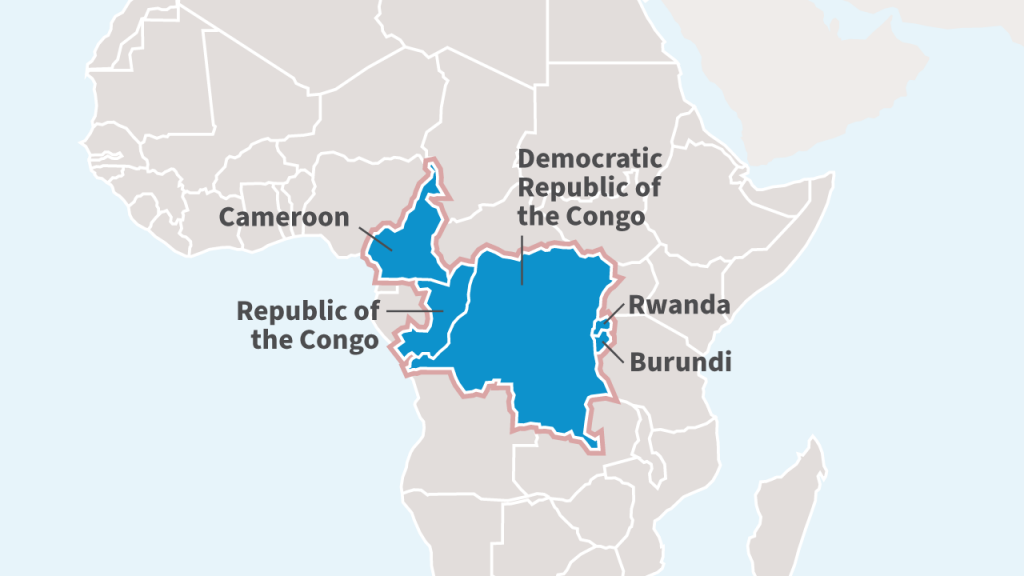Central Africa IeDEA (CA-IeDEA) is an international research consortium
The CA-IeDEA cohort includes more than 110,000 people living with HIV (PLWHIV) who enrolled in HIV care at 24 sites that participate in the research collaboration, with close to 40,000 PLWHIV across five countries currently receiving HIV care.

Our Work
CA-IeDEA investigators leverage implementation science and clinical epidemiology for improved HIV prevention, care and treatment outcomes.
Learn more >>

Where we work
The CA-IeDEA cohort involves partners in five countries: Burundi, Cameroon, Democratic Republic of the Congo, Republic of Congo, and Rwanda.
Learn more >>

Publications
Numerous publications have resulted from research undertaken by CA-IeDEA, both Central Africa-specific and Multi-Regional.
Learn more >>